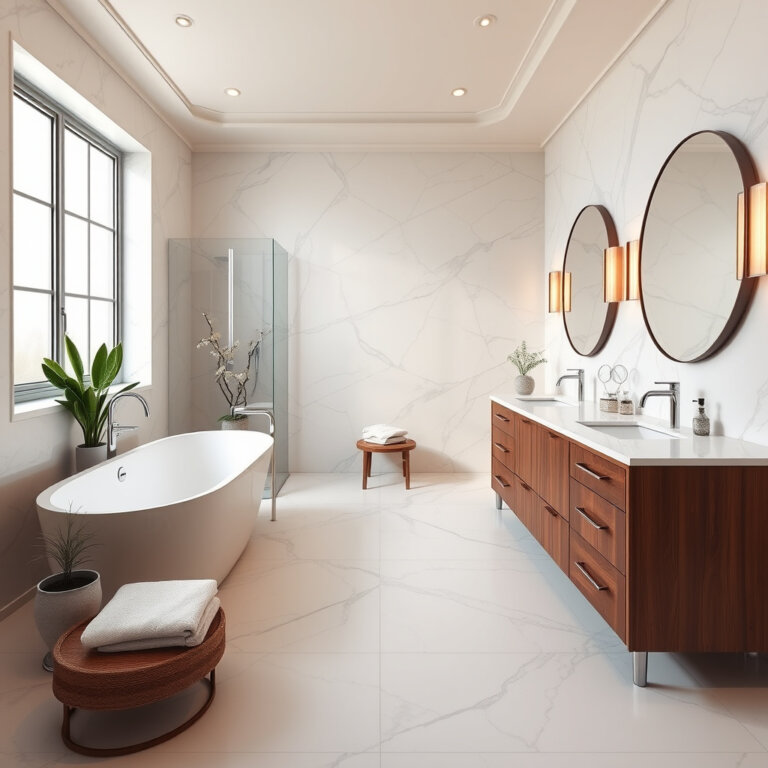What is Home Design Software?
Home design software is a specialized digital tool that assists homeowners, real estate investors, and professional contractors in planning and visualizing renovation and construction projects. By utilizing advanced technology, these programs allow users to create detailed floor plans, visualize design elements, and simulate various aesthetics within a virtual space.
Understanding Home Design Software
At its core, home design software simplifies the complex process of home renovation and design. It provides users with the ability to create accurate 2D and 3D models, making it easier to conceptualize ideas and make informed decisions. This digital approach is particularly beneficial in areas like Massachusetts, where homeowners are often looking for effective ways to enhance their property’s value through thoughtful design.
Key Features of Home Design Software
When exploring home design software, it’s important to consider its key features:
- User-Friendly Interface: Most software options are designed to be intuitive, making it easy for users of all skill levels to navigate and create designs.
- 3D Visualization: This feature allows users to see their designs in three dimensions, providing a more realistic sense of how the space will look.
- Customizable Templates: Many programs offer a variety of templates that can be customized to fit personal styles and preferences.
- Budgeting Tools: Some software includes features for estimating costs, helping homeowners stay within their budgets.
- Integration with Other Tools: Many programs can integrate with construction management software, making project management streamlined and efficient.
Applications of Home Design Software
Home design software can be applied in various contexts, including:
- Renovation Projects: Homeowners looking to update their kitchens or bathrooms can use design software to visualize changes before committing to them.
- Real Estate Development: Investors can utilize these tools to design layouts that appeal to potential buyers, enhancing their marketability.
- Interior Design: Professional designers can create detailed plans for clients, showcasing furniture placement and decor options.
- Landscaping: Many programs include outdoor design features, allowing users to plan gardens, patios, and other exterior spaces.
How to Choose the Right Home Design Software
Choosing the right software can seem daunting, but considering the following factors can help streamline the process:
- Budget: Determine how much you are willing to invest in software, as prices can vary significantly.
- Features Needed: Assess your specific needs, whether it’s 3D modeling, budgeting tools, or integration with other services.
- User Reviews: Research and read reviews from other users to gauge the software’s reliability and functionality.
- Trial Versions: Many companies offer trial versions, which can provide insight into whether the software meets your needs.
Practical Applications in Everyday Life
To leverage home design software effectively, consider these practical steps:
- Start with your Goals: Define what you want to achieve with your design project, whether it’s increasing functionality or enhancing aesthetic appeal.
- Create a Rough Sketch: Begin by sketching your ideas on paper, which can serve as a foundation when using design software.
- Experiment with Layouts: Use the software to try different layouts before making irreversible changes in your home.
- Incorporate Feedback: Share your designs with friends or family to get feedback, which can be integrated into your final design.
Related Concepts in Home Design
Understanding home design software also involves familiarity with related concepts:
- Interior Design: The art and science of enhancing the interiors of a space to achieve a healthier and more aesthetically pleasing environment.
- Architectural Design: The process of planning and designing buildings and other physical structures.
- Construction Management Software: Tools that help manage the construction process, including scheduling, budgeting, and resource allocation.
Conclusion: The Value of Home Design Software
In conclusion, home design software is an invaluable resource for homeowners, real estate investors, and contractors in Massachusetts looking to enhance their projects. By utilizing the features and applications of this software, users can transform their vision into reality, ensuring that every design decision is backed by data and creativity.
As you embark on your next home renovation or construction project, consider how home design software can streamline the process and elevate your outcomes. Start exploring today and unlock the potential of your space!







